Conflict Zones
Israel intercepts missile launched by Yemen’s Houthis | Houthis News
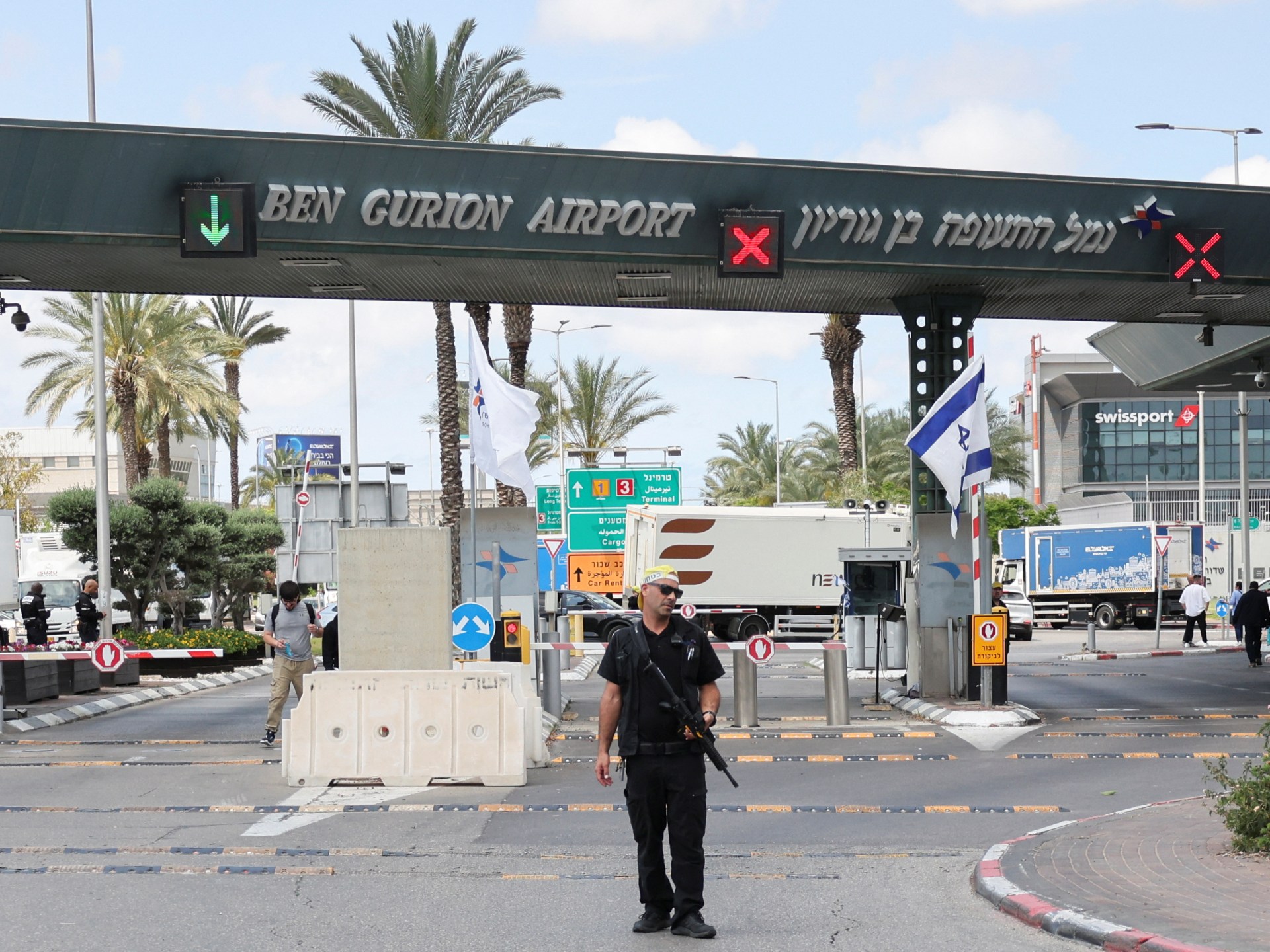
The incident comes days after Oman said it mediated a ceasefire deal between the US and the Houthi group.
Air raid sirens were heard in Israel as a missile was launched towards the territory by Yemen’s Houthis, who say they are retaliating against Israeli sites in solidarity with Palestinians in Gaza.
Israel’s military said it intercepted the projectile on Friday using its air defence systems.
The incident came days after Oman said it mediated a ceasefire deal between the United States and the Houthis, with the Yemeni group saying the agreement did not include Israel.
Houthi rebels fired a “hypersonic ballistic missile” towards Ben Gurion airport near Tel Aviv, while also claiming a drone attack “targeting a vital Israeli enemy target” in the same area, according to the group’s military spokesperson, Yahya Saree.
Israeli media reported that air raid sirens were sounded in several areas across central Israel, with people receiving early warning mobile messages about the missile attack.
Israeli Defence Minister Israel Katz said that Israel would respond forcefully in Yemen and “wherever necessary”, describing the Houthi missiles as “Iranian”.
There were no reports of injuries or damage from the missile attack, according to a military statement.
US President Donald Trump announced on Tuesday that his country would stop bombing Yemen as the Houthis had agreed to stop their attacks on US ships in the Red Sea.
But the Houthis have continued to fire missiles and drones towards Israel, most of which the Israeli military says it has intercepted, without casualties or serious damage occurring.
The Houthis have attacked numerous vessels in the Red Sea linked to Israel and its allies in what they state is an act of solidarity with Palestine.
According to Israeli media, the Houthi group has launched 28 ballistic missiles and dozens of drones at Israel since March 18, when Israel resumed its genocidal war on Gaza.
Israel has been waging a devastating war on the enclave since October 2023, killing more than 50,000 Palestinians, after a Hamas-led attack into southern Israel that month.
Conflict Zones
Gunmen kill 30 during ‘vicious’ attack in southeast Nigeria: Rights group | Gun Violence News
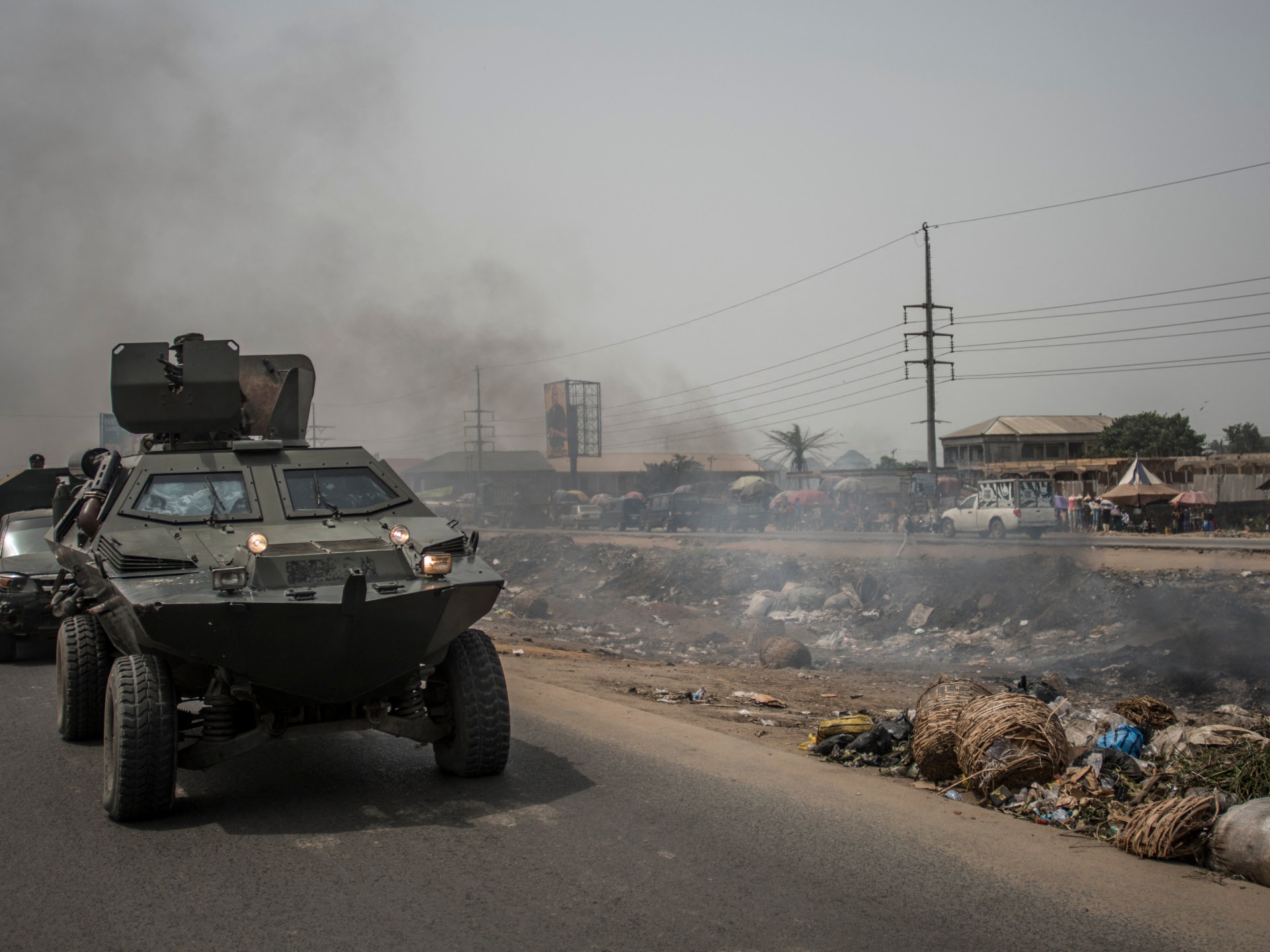
Attack in Imo State ‘shows callous disregard for the sanctity of life’, rights group Amnesty International says.
At least 30 people were killed when gunmen attacked travellers in Nigeria’s southeastern Imo State, according to Amnesty International.
The human rights NGO reported on Friday that more than 20 commuter vehicles and trucks were set ablaze during a “vicious attack” along the Okigwe-Owerri road the day before.
The attackers are suspected of being members of the banned separatist group, Indigenous People of Biafra (IPOB), Amnesty said.
“The attack … shows callous disregard for the sanctity of life. The gunmen blocked Okigwe-Owerri highway and areas of Umuna in Onuimo LGA unleashed violence in an utter show of impunity,” Amnesty wrote on X.
“The Nigerian authorities must immediately and transparently investigate this attack and ensure that the actual perpetrators are brought to justice. International law requires the Nigerian government to promptly investigate unlawful killings to bring perpetrators to justice,” it added.
Amnesty International strongly condemns the vicious attack on travelers yesterday 8 May 2025, along Okigwe-Owerri Road in Imo State, killing at least 30 people and burning over 20 commuter vehicles and trucks.
— Amnesty International Nigeria (@AmnestyNigeria) May 9, 2025
Imo police spokesperson, Henry Okoye, confirmed that the attack took place in the early hours of Thursday, but declined to comment on the death toll.
On Friday, Okoye told the Reuters news agency that one of the assailants had been killed by the police.
According to a police statement, the gunmen, operating in three groups, blocked the highway at 04:00 GMT and shot sporadically.
“A full-scale search and cordon operation is currently underway, with security operatives combing nearby forests and surrounding areas where the suspects are believed to be hiding,” the police said.
Nigeria’s Premium Times also reported that the police commissioner of Imo State, Aboki Danjuma, led a joint tactical team of security operatives to the scene.
According to Danjuma, the joint security team comprised personnel from Nigeria’s army, the police, and the State Security Service.
The IPOB, which the Nigerian government has classed as an outlawed organisation, has been campaigning for the secession of southeastern Nigeria, where the majority of people belong to the Igbo ethnic group.
Following the late 1960s civil war that engulfed the Biafra region, killing more than one million people, separatist groups have continued to push for an independent state from the southeast and in some parts of the south of Nigeria.
Conflict Zones
Who are the armed groups India accuses Pakistan of backing? | Armed Groups News
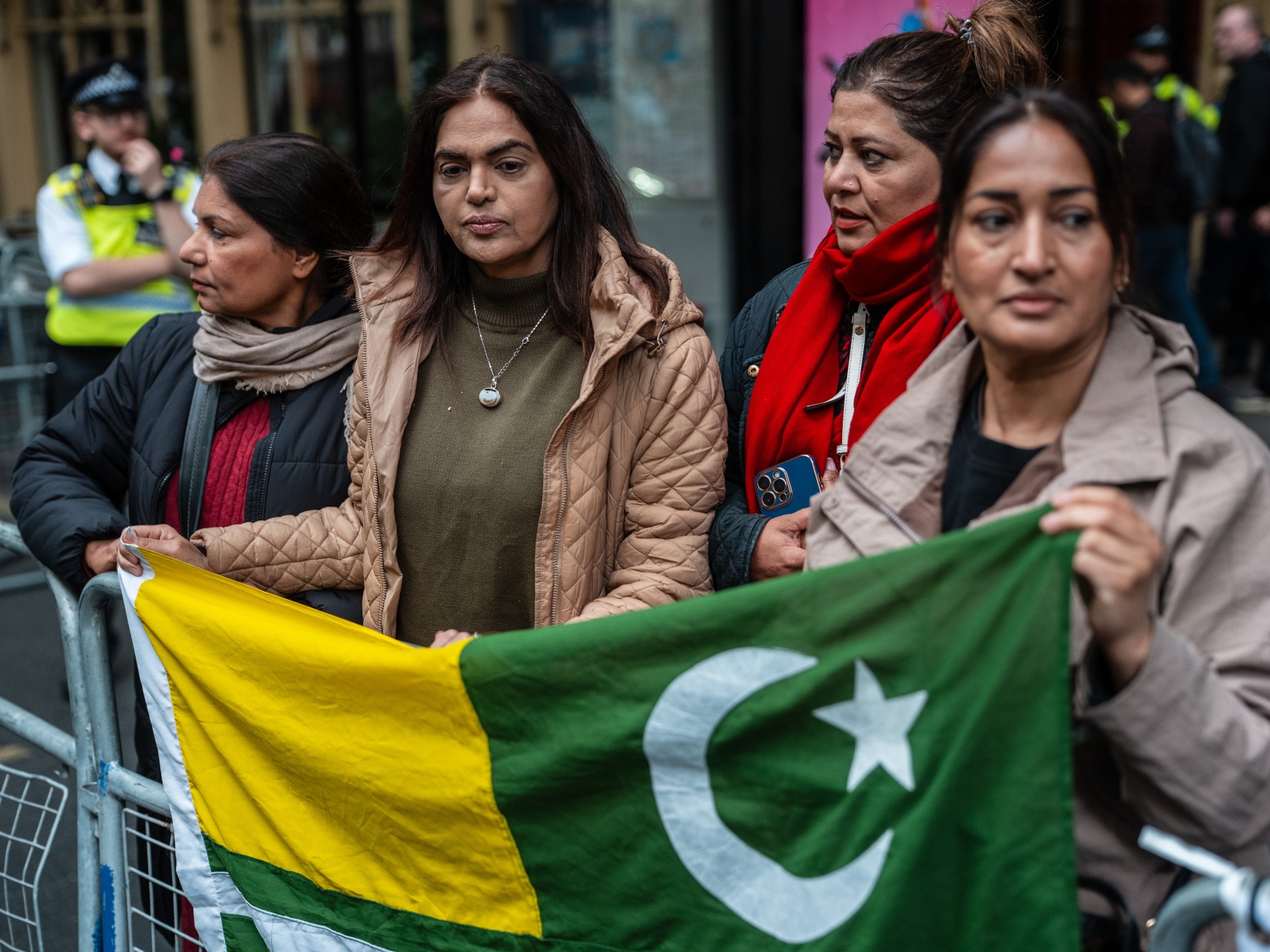
Tensions are higher between India and Pakistan than they have been in decades as the two countries trade blame for drone attacks on each other’s territory over the past few days. At the heart of the dispute is what India claims is Pakistan’s support for armed separatist groups operating in Kashmir, a region disputed between the two countries.
An armed group called The Resistance Front (TRF) claimed responsibility for the Pahalgam attack in Indian-administered Kashmir last month in which 26 people were killed. India alleges that TRF is an offshoot of another Pakistan-based armed group, Lashkar-e-Taiba (LeT) and has blamed Pakistan for supporting such groups.
Pakistan has denied this. It condemned the attack in April and called for an independent investigation.
Here is more about who the armed groups are and the major attacks they’ve claimed or been blamed for.
The TRF emerged in 2019 following the Indian government’s suspension of Article 370 of the Indian Constitution, stripping Indian-administered Kashmir of its semi-autonomous status.
However, the group was not widely known before the Pahalgam attack, which it took responsibility for in April via the Telegram messaging app, on which it said it was opposed to the granting of residency permits to “outsiders”.
Since the repeal of Article 370, non-Kashmiris have been granted residency permits to settle in Indian-administered Kashmir. This has stoked fears that the Indian government is trying to change the demographics of Kashmir, whose population is nearly all Muslim.
Unlike other armed rebel groups in Kashmir, the TRF does not have an Islamic name.
However, the Indian government maintains that it is an offshoot of, or a front for, Lashkar-e-Taiba (LeT), a Pakistan-based armed group whose name means “Army of the Pure”.
In 2020, TRF started claiming responsibility for minor attacks, including some targeted killings. TRF recruits included rebels from different splinter rebel groups. Indian security agents say they have arrested multiple TRF members since then.
According to Indian government records, most armed fighters killed in gunfights in Kashmir were affiliated with the TRF in 2022.
The LeT, which calls for the “liberation” of Indian-administered Kashmir, was founded around 1990 by Hafiz Muhammad Saeed, who is also known as Hafiz Saeed.
In 2008, armed gunmen opened fire on civilians at several sites in Mumbai, India, killing 166 people. Ajmal Kasab, the only attacker captured alive, said the attackers were members of LeT. Saeed denied any involvement in that attack, however. Kasab was executed by India in 2012.
India also blamed Pakistani intelligence agencies for the attack. While Pakistan conceded that the attack may have been partly planned on Pakistani soil, it maintained that its government and intelligence agencies were not involved.
According to the United Nations, LeT was also involved in a 2001 attack on India’s parliament and a 2006 attack on Mumbai commuter trains that killed 189 people.
On May 7, India launched missile attacks on several cities in Pakistan and Pakistan-administered Kashmir. One of these cities was Muridke in the Punjab province. India claims that Muridke was the location of the headquarters of the Jamat-ud-Dawa, a charity organisation that New Delhi insists is a front for the LeT.
Last week, the Indian army claimed it had struck LeT’s Markaz Taiba camp in Muridke. The army also claimed Kasab had been trained at this camp.
Pakistan says LeT has been banned, however. Following an attack on Indian-administered Kashmir’s Pulwama in 2019, Pakistan also reimposed a lapsed ban on Jamat-ud-Dawa. Saeed was arrested in 2019 and is in the custody of the Pakistani government, serving a 31-year prison sentence after being convicted in two “terror financing” cases.
Jaish-e-Muhammad (JeM), or “The Army of Muhammad”, was formed around 2000 by Masood Azhar, who had been released from Indian prison in 1999.
Azhar, who had been arrested on “terrorism” charges, was released in exchange for 155 hostages being held by hijackers of an Indian Airlines plane.
Azhar previously fought under the banner of a group called Harkat-ul-Mujahideen, which calls for Kashmir to be united with Pakistan, and has been linked to al-Qaeda.
According to the UN Security Council, JeM has also had links with al-Qaeda, Osama bin Laden and the Taliban.
Pakistan banned JeM in 2002 after the group, alongside LeT, was blamed for an attack on the Indian parliament in 2001.
The British-born Ahmed Omar Saeed Sheikh, who was convicted of killing US journalist Daniel Pearl in 2002, was also a member of JeM. Pearl was the Wall Street Journal’s South Asia bureau chief. However, a 2011 report released by the Pearl Project at Georgetown University following its own investigation claimed that Pearl had not been murdered by Sheikh. The report instead alleged that Khalid Sheikh Mohammed, the mastermind behind the September 11, 2001 attacks, was responsible. In 2021, a panel of three judges at Pakistan’s Supreme Court ordered Sheikh’s release.
Despite the ban, Indian authorities claim the group continues to operate in Bahawalpur, in Pakistan’s Punjab province. On May 7, the Indian army claimed its strikes had also targeted the headquarters of JeM there.
In 2019, JeM claimed a suicide bomb attack that killed 40 Indian paramilitary soldiers in Pulwama in Indian-administered Kashmir.
Azhar has been arrested by Pakistani authorities twice, but was released and has never been charged. He has since disappeared from the public eye and his current whereabouts are not known.
Hizbul-ul-Mujahideen
Hizbul-ul-Mujahideen (HuM), or “Party of Holy Fighters” was formed in 1989 by Kashmiri separatist leader Muhammad Ahsan Dar.
The group emerged out of the 1988 protests in Kashmir against the Indian government. The group, also called Hizb, has become the largest Indigenous rebel group based in Indian-administered Kashmir.
Rather than calling for independence, HuM calls for the whole of Kashmir to be allowed to accede to Pakistan.
The group has a huge network of fighters in Shopian, Kulgam and Pulwama districts in the south of Indian-administered Kashmir.
In 2016, the killing of popular HuM commander Burhan Wani triggered widespread protests in Indian-administered Kashmir, resulting in a crackdown by Indian security forces.
The following year, the US designated HuM as a “foreign terrorist organisation” and placed sanctions on the group.
HuM leader Riyaz Naikoo spoke to Al Jazeera in 2018. “It is the nature of the occupying Indian state that has compelled us to resort to violent methods of resistance,” he said.
When asked what the group’s demands were, Naikoo said: “Our demand is very simple – freedom. Freedom, for us, means the complete dismantling of India’s illegal occupation of Kashmir and all the structures that support it, be they military or economic.”
He added that the group considers Pakistan an “ideological and moral friend” because “Pakistan is the only country which has consistently supported our cause and raised the concerns of Kashmiri freedom struggle at international forums”.
Conflict Zones
EU ministers back Ukrainian tribunal to try Russian officials | Russia-Ukraine war News
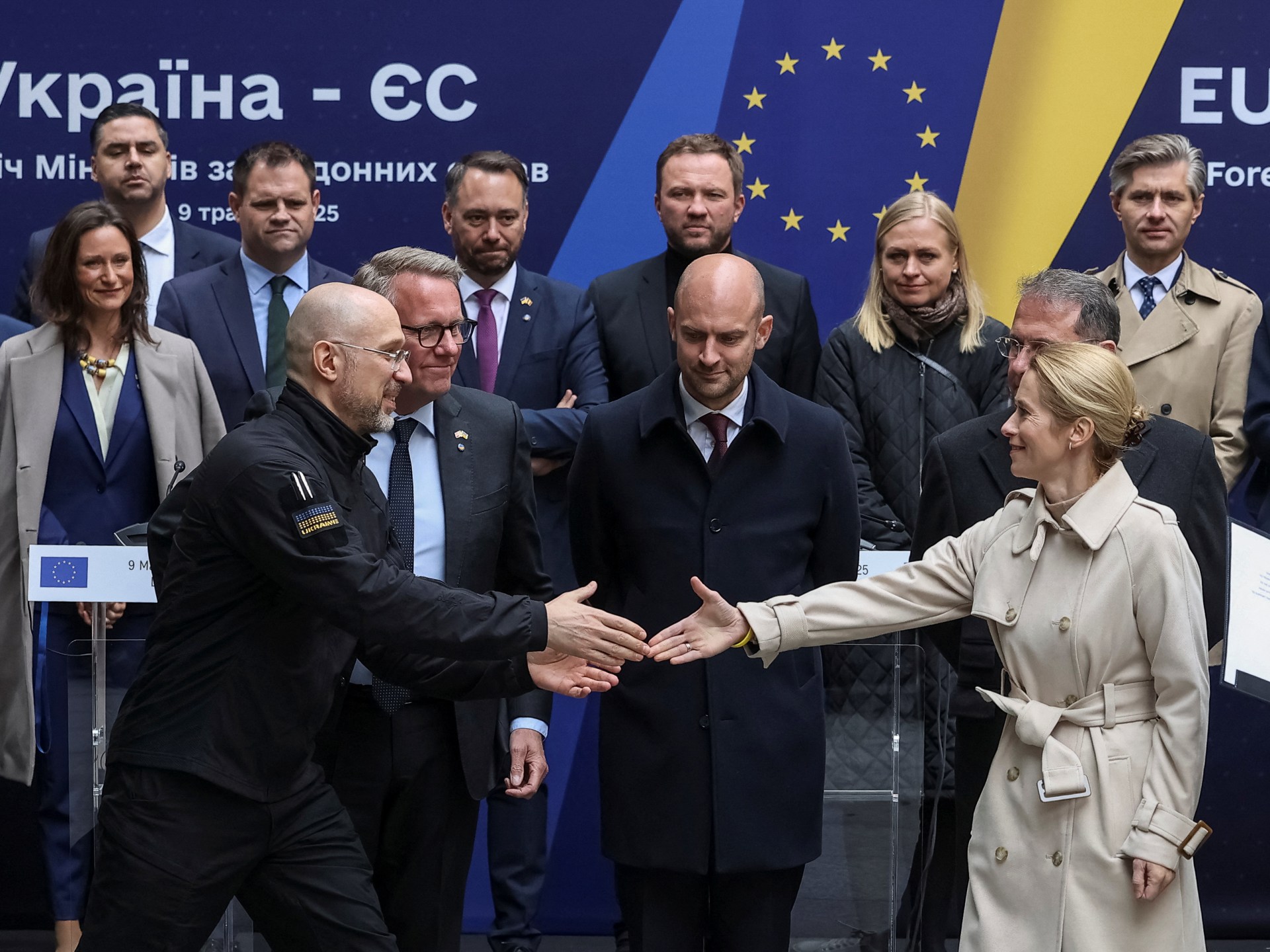
The tribunal will hold Russian President Vladimir Putin and his ministers to account for the invasion of Ukraine.
Kyiv’s European allies have endorsed the creation of a special tribunal to hold top Russian leaders, including President Vladimir Putin, to account for the 2022 invasion of Ukraine.
European Union foreign ministers, who met in the Ukrainian city of Lviv on Friday, signed off on the tribunal, named the “Lviv statement”, to mark the conclusion of the technical work to draft the legal body.
The EU’s top diplomat, Kaja Kallas, told reporters there was no space for “impunity”.
“Russia’s aggression cannot go unpunished and therefore establishing this tribunal is extremely important,” Kallas said.
“This tribunal will ensure that those most responsible for the aggression against Ukraine are held accountable,” she added.
Ukrainian President Volodymyr Zelenskyy also said the tribunal was part of the continent’s moral duty to hold Russia accountable for the war.
“A strong tribunal for the crime of aggression can – and must – make any potential aggressor think twice,” he said in a video address to the meeting.
Meanwhile, Russia declined to respond to news of the tribunal. “We are not reacting to this,” Kremlin spokesman Dmitry Peskov said on Friday, according to the TASS state news agency.

An EU official told the Reuters news agency that the tribunal would have to respect Putin and his officials’ immunity while in office, but a prosecutor could investigate and propose an indictment ready for when the immunity is dropped.
Dutch Justice Minister David van Weel welcomed the move and told Reuters that the tribunal was a good step because it “fills a void that currently exists”.
“Which is how can you prosecute the leadership for the crime of aggression against another country,” he said.
While the tribunal could start operating this year, it is not the only legal instrument being used against Russia for its war on Ukraine.
In 2023, the International Criminal Court (ICC) issued arrest warrants for Putin and other Russian officials for the forced deportation of children and attacks on Ukrainian energy sites.
Frozen Russian assets
Elsewhere on Friday, France announced that it would begin tapping into income from frozen Russian assets to help maintain about 60 French-made Caesar howitzers delivered to Ukraine.
France’s foreign minister Jean-Noel Barrot said that using the funds will ensure the “continued maintenance of the Caesar cannons it has supplied to Ukraine to help resist Russian attacks”.
“We want peace, and today the only obstacle to peace is in Moscow, parading around under the name of Vladimir Putin,” said Barrot, adding that pressure must be put on the Russian leader to agree to a ceasefire.
In Lviv, the EU’s Kalas also pledged to disburse one billion euros ($1.1bn) from the proceeds of frozen Russian assets to Ukrainian arms companies.
“We have just made available 1 billion euros for the Ukrainian defence industry so that Ukraine could better defend itself,” Kallas said. “This funding will directly support Ukrainian defence companies and secure additional military aid over the coming months, which are critical.”
The West has frozen around $300bn of Russian central bank assets – most of which are located in Europe – over Moscow’s February 2022 invasion.
Friday’s developments came as Putin told a military parade in front of key allies, including China’s Xi Jinping, that Russia would be victorious in Europe.
-
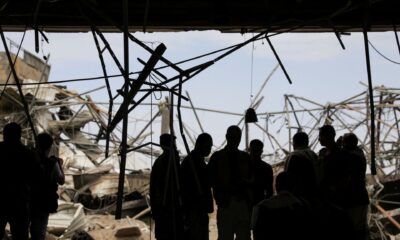
 Middle East2 days ago
Middle East2 days agoThe Take: What does Israel’s escalation with the Houthis mean for Yemen? | Houthis News
-
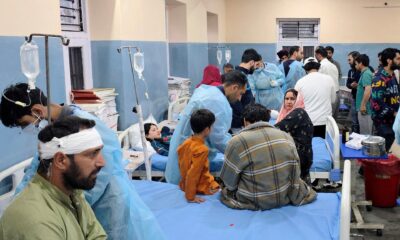
 Conflict Zones2 days ago
Conflict Zones2 days ago‘Don’t want war’: Kashmiri towns caught in deadly India-Pakistan crossfire | India-Pakistan Tensions
-

 Asia2 days ago
Asia2 days agoChina’s Xi hails ‘stable and resilient’ Russia ties as he shows solidarity with Putin in Moscow
-
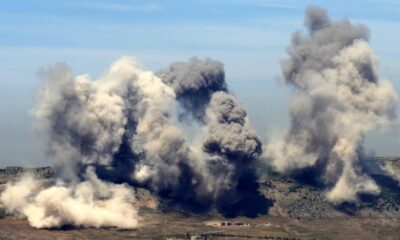
 Middle East2 days ago
Middle East2 days agoOne killed, eight wounded as Israel hits Lebanon in major post-truce attack | Israel attacks Lebanon News
-

 Conflict Zones2 days ago
Conflict Zones2 days agoHave India and Pakistan started a drone war? | Drone Strikes News
-

 Lifestyle2 days ago
Lifestyle2 days ago‘Long Way Home’ has Ewan McGregor and Charley Boorman riding in Europe
-

 Education2 days ago
Education2 days agoThe best and brightest young scientists are looking beyond the U.S. as cuts hit home
-
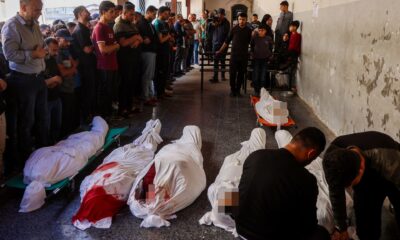
 Middle East2 days ago
Middle East2 days agoUN experts warn of ‘annihilation’ as Gaza deaths mount | Gaza News




